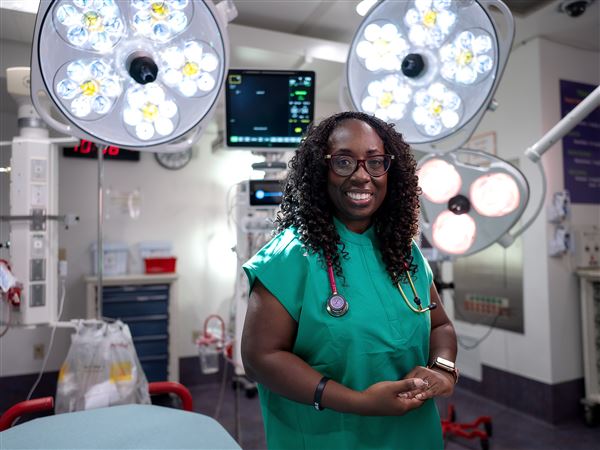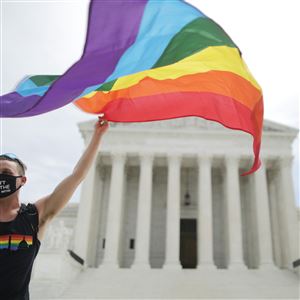The landmark U.S. Supreme Court decision on Monday protecting the rights of LGBT people in the workplace marked a resounding win at the federal level, but employment protections on the bases of sexual orientation, gender identity and expression already existed in Pittsburgh’s city limits and have accounted for several investigations by the city’s Human Relations Commission.
“Last year, 10% of our employment discrimination cases filed were on one of these three bases, and we expect that we will need to provide even more education and investigations with this recent Supreme Court ruling,” Megan Stanley, commission director, said in a Tuesday press release.
Five of the 51 employment discrimination cases opened and investigated by the commission in 2019 focused on sexual orientation, gender identity or expression, and in some cases a combination, according to commission figures.
There are likely many more discrimination cases that are not being reported, said Ciora Thomas, president and founder of SisTers PGH, a trans rights advocacy organization.
“When we are able to get into 9-to-5 type of employment, and we are discriminated against, and that puts us into dangerous situations, like homelessness ... and all types of mental health issues,” said Ms. Thomas, whose organization focuses on providing resources and temporary shelter, “there are definitely cases out there because there are a lot of employers that do not offer the space for employees to complain. It might be a mom-and-pop place and they don’t have to answer to anyone, or even in corporate organizations.”
Discrimination often takes the form of being denied a job at the outset or, once employed, being denied a promotion or facing harassment and different treatment after coming out or transitioning, both Ms. Stanley and Ms. Thomas said.
The commission investigated an additional 23 housing and four public accommodations cases in 2019 under the respective 13 and 10 protected classes that include sexual orientation, gender identity and expression.
Pennsylvania municipalities, including Allegheny County, Pittsburgh and Philadelphia, began adopting their own anti-discrimination codes in 1982. Pittsburgh’s protections for sexual orientation were codified in 1990. In 1997, protections for gender identity and expression were codified under the class of sex. In 2019, the city council approved defining gender identity and expression as its own protected class, exceeding federal standards.
“We wanted to make sure gender and sex are not synonymous, [and] gender expression and gender identity are not necessarily the same thing,” said Ms. Stanley, who supported the bill initially introduced by council members Erika Strassburger and Bruce Kraus.
The Supreme Court decision “adds some gravitas, that this was added by the highest court in the country. I’d like to think we’re ahead of the game, and we know what best practices look like, and we’re happy to work with employers and employees who want to know what their rights and obligations are under the law,” Ms. Stanley said.
The commission, with the help of Ms. Thomas, has already been providing gender awareness training.
While protections for LGBT people in the workplace are now federal law, there is no blanket security for housing.
The U.S. Department of Housing and Urban Development, which administers and funds homeless shelters, is expected in the coming weeks to propose a rule change that single-sex homeless shelters would not have to accommodate trans individuals. Details of potential rule change were initially uncovered by The Washington Post.
Ms. Stanley urges anyone who has faced discrimination under the city’s protected classes in their employment, housing or public accommodation to contact the commission at 412-436-9619, on social media @PghCHR, or by email at human.relations@pittsburghpa.gov.
Ashley Murray: amurray@post-gazette.com.
First Published: June 16, 2020, 10:42 p.m.


















